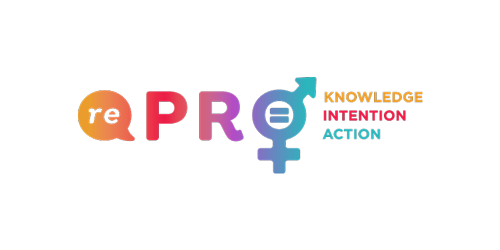The Key To Normalizing Conversations About Periods
I think the key to normalizing conversations about periods is to Just Talk About It!
I grew up in a household with two brothers and no sisters and menstruation was literally never discussed in my house. Not with my father or brothers, certainly, but not really with my mom either, beyond me telling her awkwardly the first time it happened, several days after the fact. We never talked about what it felt like or if she had associated symptoms or what types of products she used or if she ever needed medication for cramping or other symptoms. For me, those conversations only ever happened with my girlfriends. I remember being vaguely uncomfortable if a commercial for “feminine products” came on TV if anyone was in the room with me at home. Sometimes my brothers would laugh. Usually, we all averted our eyes and acted like it wasn’t happening.
Flash forward to 15 years later when, as a newly minted gynecologist, I found that talking to adolescent girls about their reproductive health was one of my favorite parts of my job. Once I had kids of my own (two girls and a boy), my husband and I made a point to always speak openly to them about all things related to their bodies and bodily functions. My son has grown up hearing both of his sisters talk openly in front him about periods and associated symptoms. They speak freely about periods in front of their male friends in a way that never happened in mixed company when I was in high school. This does not appear to be unique to my household. My friends all report more frequent and open conversations about periods among their children than they had when they were adolescents. So I think we are moving in the right direction.
Because it is new experience for them, menstruating pre-teens and adolescents may feel awkward initiating conversations. Because of this, I would strongly encourage the adults in their lives to be the ones to begin the conversations. Young kids may not be overly receptive initially, but the more times adults can bring up conversations in an easy and natural manner, the more kids will internalize that this is just a regular thing to talk about and the more likely they are to ask questions. Very young children may see pads or tampons at home or commercials on TV and ask what they are. This is a perfect time to tell them age-appropriate information in a straightforward manner, using correct terms. If adults act embarrassed or use vague euphemisms (“mommy’s special band aids” or other similarly inaccurate, cutesy names) or avoid answering altogether, kids will pick up quickly that this a topic to avoid or feel embarrassed about. If they internalize this awkwardness at a young age, it is harder to overcome later. It is especially important to avoid conveying only negative connotations with periods. Talking about periods as “a curse” or “such a pain” or as something that really hurts and is entirely miserable, sets kids up to have negative thoughts about periods. Blood is already associated with things that hurt and kids may actually be fearful of menstruation if all they know is that it involves bleeding and pain or embarrassment.
Well before a young person begins menstruating, a parent should fully prepare them for it. Schools typically provide some information for kids around 5th grade. This may not be early enough for some girls. The average of a girl’s first period in the United States is 11.9 years old. 10% of girls will have their first period by age 10. Given this information, parents should consider talking to their kids about menstruation around the time they are in 3rd grade. There are several good books to help parents if needed. The Period Book: A Girl’s Guide to Growing Up by Karen Gravelle and The American Girl books, The Care and Keeping of You and The Care and Keeping of You 2 are good resources. Kids shouldn’t live in fear of getting their first period at school or somewhere else away from home and not being prepared for it. They should know what to expect and they may feel better have a small bag of supplies (a couple pads or tampons) that they could keep in their backpack if needed. Knowledge is power and young people will feel far more confident if they know what to expect and are prepared for it.
For a newly menstruating kid, a parent should check in for the first few months. Ask how it’s going. Ask if they have any symptoms. Ask if they need products or want to try another kind of product. As a quick side note, there is no reason that even very young menstruating kids can’t use tampons immediately. With instruction and selection of the smallest size of tampons, kids can usually learn to use them immediately. There is no reason young kids need to miss out on swimming or any other physical activity because of a period. When a parent is headed to the grocery store, they could intentionally ask every time whether any products are needed. The more these kinds of routine conversations happen openly, in front of any other family members, the more we will normalize talking about periods.
Just Talk About It!

Our resident expert Dr. Julia Arnold VanRooyen is here to answer all of your rePRO questions!
Simply fill out the form below - you may remain anonymous if you choose - and she'll answer them in our bi-monthly Periodical emails and social media channels. Leave your question below!


